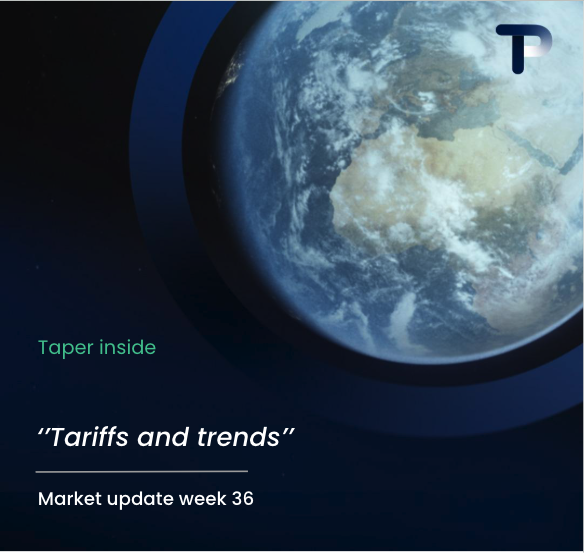A global IBAN setup allows you to manage all cross-border payments through a single, unified account that supports multiple currencies and international transactions. This approach eliminates the need for multiple foreign bank accounts whilst providing transparent fees, faster processing times, and centralised payment management for your international business operations.
What is a Global IBAN Setup and How Does it Work?
A global IBAN setup is a comprehensive banking solution that provides businesses with a single International Bank Account Number capable of handling multiple currencies and international transactions. Unlike traditional banking arrangements that require separate accounts for different countries or currencies, this system consolidates all your international banking needs into one accessible platform.
The system works by combining the standardised IBAN format with multi-currency capabilities. Your global IBAN serves as a unique identifier that enables you to receive payments from anywhere in the world, whilst the underlying infrastructure supports holding balances in various currencies simultaneously. This means you can accept payments in euros, US dollars, British pounds, and other major currencies without needing separate accounts for each.
The technical foundation relies on sophisticated banking networks that connect local payment systems across different countries. When a client sends you a payment in their local currency, the global IBAN system can either hold those funds in the original currency or convert them based on your preferences. This flexibility allows you to time currency conversions strategically, potentially benefiting from favourable exchange rates.
Digital access forms a crucial component of these systems. Most global IBAN providers offer online platforms and mobile applications that give you real-time visibility of all your international payments, currency balances, and transaction history from a single dashboard.
How Does Managing All Cross-border Payments Through One IBAN Reduce Costs?
Consolidating your cross-border payments through a single IBAN dramatically reduces costs by eliminating multiple account maintenance fees and reducing currency conversion expenses. Traditional international banking often requires businesses to maintain separate accounts in different countries, each carrying monthly fees, minimum balance requirements, and transaction charges.
The most significant savings come from reduced currency conversion costs. When you hold multiple currencies within one account, you can transact directly in the required currency without constant conversions. For example, if you regularly receive payments in euros and need to pay European suppliers, you can handle these transactions without converting to your base currency and back again, eliminating double conversion fees.
Transparent fee structures represent another major advantage. Global IBAN providers typically offer clear, predictable pricing for international transactions, unlike traditional banks that often apply hidden charges or unclear exchange rate margins. This transparency allows you to budget accurately for international payment costs and compare providers effectively.
Wire transfer fees also decrease significantly. Instead of paying high international wire transfer charges for each cross-border payment, global IBAN systems often process payments through local networks, reducing transaction costs. Some providers offer competitive FX payment solutions that further minimise conversion costs through better exchange rates.
Administrative costs drop as well. Managing one account instead of multiple international accounts reduces banking administration, reconciliation time, and the complexity of financial reporting across different currencies and institutions.
Why Does a Unified IBAN System Improve Payment Processing Efficiency?
A unified IBAN system transforms payment processing efficiency by centralising all international transactions into a single, streamlined workflow. Instead of monitoring multiple accounts across different banks and countries, you gain complete visibility of all incoming and outgoing payments through one platform.
Processing speed improves significantly because unified systems often connect directly to local payment networks in various countries. When you receive a payment from Germany, for instance, it processes through the local German banking system rather than going through multiple international correspondent banks, reducing settlement times from days to hours.
Reconciliation becomes remarkably simpler when all your international payments flow through one account. Your accounting team can download a single statement covering all currencies and transactions, rather than gathering data from multiple banks and converting various formats. This consolidation reduces the risk of missed payments or reconciliation errors.
Real-time tracking capabilities allow you to monitor payment status instantly. Modern global IBAN systems provide notifications when payments are received, processed, or require attention, enabling proactive cash flow management. You can see exactly when funds will be available and plan accordingly.
The administrative overhead decreases substantially. Instead of maintaining relationships with multiple banks, handling various online banking platforms, and managing different reporting requirements, you work with a single provider. This simplification frees up time for core business activities whilst reducing the complexity of international financial management.
Automated currency management features further enhance efficiency. You can set rules for automatic currency conversions, establish hedging strategies, and manage exchange rate exposure without manual intervention for routine transactions.
For businesses regularly handling international payments, a global IBAN setup represents a fundamental shift towards more efficient, cost-effective financial operations. By consolidating multiple banking relationships into one comprehensive solution, you gain better control over costs, improved processing speeds, and simplified administration. At TaperPay, we understand these challenges and provide the multi-currency IBAN solutions that help ambitious businesses streamline their international payment processes whilst focusing on growth.
Hi there! 👋 I see you're reading about multi-currency IBAN accounts for supply chain payments. Smart choice - these accounts can save businesses 2-4% on every international transaction!
What best describes your current situation with international supplier payments?
Which of these challenges are you currently facing with international payments? (Select all that apply)
What's driving your interest in multi-currency payment solutions? Tell us about your business goals or challenges.
Great! To help us understand your specific needs better, could you share more details about your international payment volume or any particular requirements?
Perfect! Let's connect you with one of our international payments specialists who can show you exactly how Taper's multi-currency IBAN accounts can save you money and streamline your supply chain payments.
Hi there! 👋 I see you're reading about multi-currency IBAN accounts for supply chain payments. Smart choice - these accounts can save businesses 2-4% on every international transaction!
What best describes your current situation with international supplier payments?
Which of these challenges are you currently facing with international payments? (Select all that apply)
What's driving your interest in multi-currency payment solutions? Tell us about your business goals or challenges.
Great! To help us understand your specific needs better, could you share more details about your international payment volume or any particular requirements?
Perfect! Let's connect you with one of our international payments specialists who can show you exactly how Taper's multi-currency IBAN accounts can save you money and streamline your supply chain payments.



